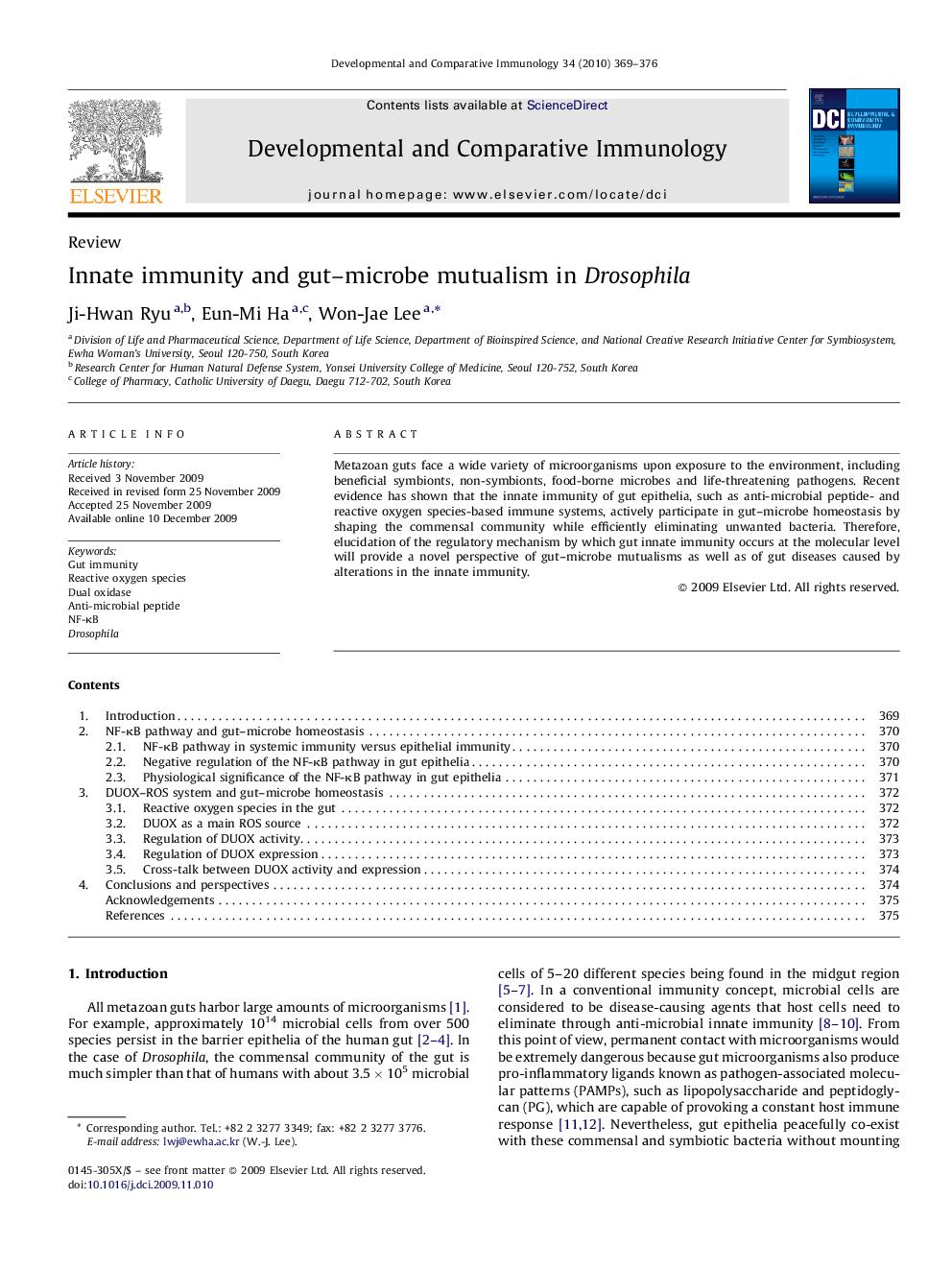| Article ID | Journal | Published Year | Pages | File Type |
|---|---|---|---|---|
| 2430143 | Developmental & Comparative Immunology | 2010 | 8 Pages |
Abstract
Metazoan guts face a wide variety of microorganisms upon exposure to the environment, including beneficial symbionts, non-symbionts, food-borne microbes and life-threatening pathogens. Recent evidence has shown that the innate immunity of gut epithelia, such as anti-microbial peptide- and reactive oxygen species-based immune systems, actively participate in gut–microbe homeostasis by shaping the commensal community while efficiently eliminating unwanted bacteria. Therefore, elucidation of the regulatory mechanism by which gut innate immunity occurs at the molecular level will provide a novel perspective of gut–microbe mutualisms as well as of gut diseases caused by alterations in the innate immunity.
Related Topics
Life Sciences
Biochemistry, Genetics and Molecular Biology
Developmental Biology
Authors
Ji-Hwan Ryu, Eun-Mi Ha, Won-Jae Lee,
